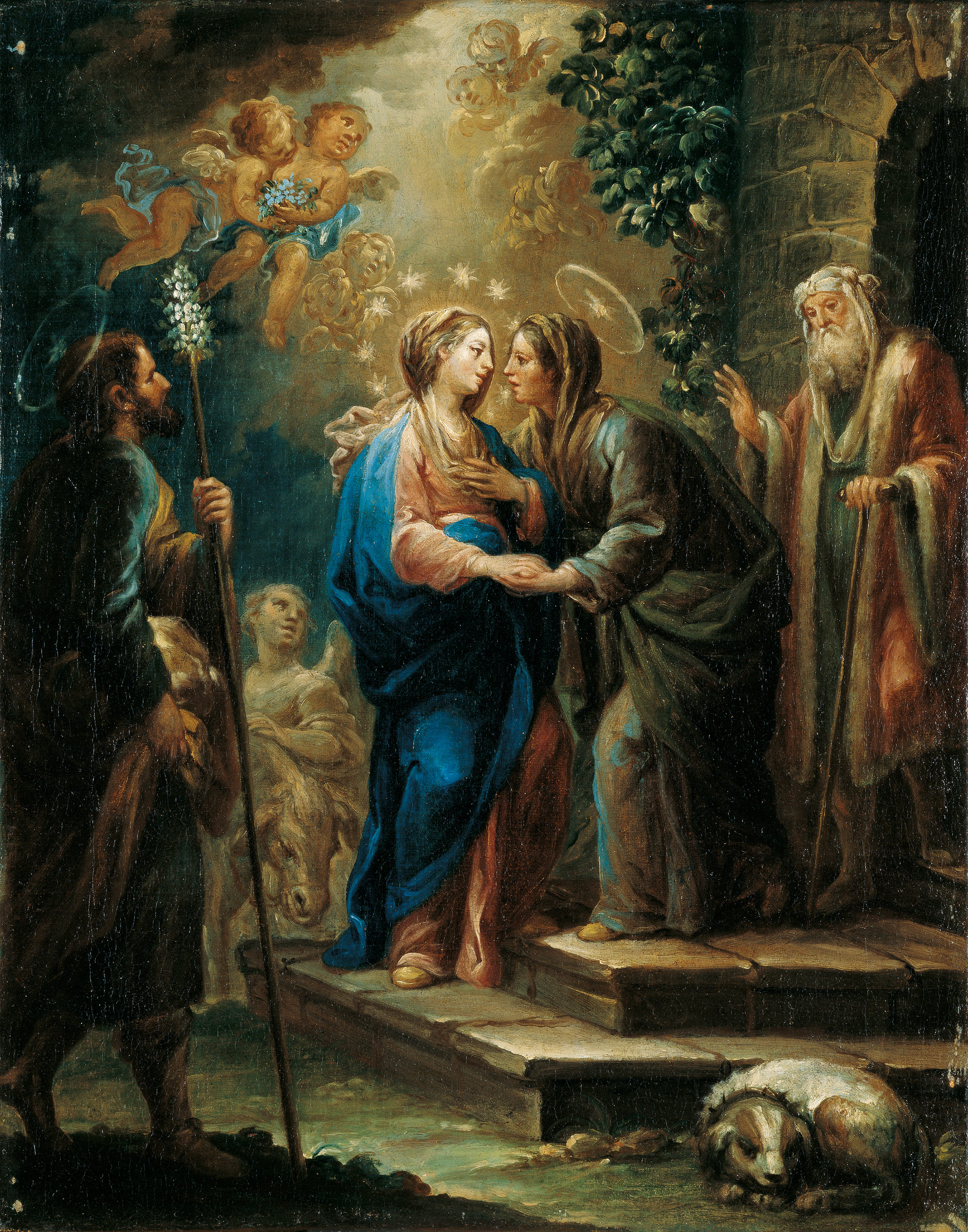Below is the text of my second homily, given for the Fourth Sunday in Advent.

THE FOURTH SUNDAY IN ADVENT – YEAR C
Hebrews 10:5-10 & Luke 1:26-38
Christmas is not yet here, and so on this fourth Sunday in Advent, we still have time to prepare our hearts as we wait to recognise the coming of our Lord in the birth of Jesus Christ, son of Mary, and son of the Most High.
Let’s reflect on the gift that we are about to receive and how we might prepare to receive Him.
Giving a gift is an act of love. In giving a gift, weseparate something from our self for the good of another. We make a loving sacrifice. When we are presented with a gift, we are presented with an invitation: an invitation to respond with thanksgiving. We are invited to enter more fully into the promise of a relationship that a gift offers, and this requires that we orient ourselves towards the other, not only in our attitude, but in our action.
Now, try to remember the best gift you’ve ever received. It might have been for your birthday, or Christmas, whatever the occasion, remember that gift. Think about what it felt like as you unwrapped it. Did you carefully peelaway the wrapping, or did you tear it open in excitement? What happened inside you when you saw it for the first time? What did you feel? Were your surprised? Did you laugh? Did you cry? Did you stare at it in wonder?
A carefully chosen gift matches the precise character and needs of the person receiving it. A well-chosen gift makes us feel loved, makes us feel seen for who we are.
The reading from the Letter to the Hebrews has Jesus referencing the burnt offerings and sin offerings that were required according to the Law of Moses, he then adds “See, God, I have come to do your will.”
It is written that Jesus abolishes the first in order to establish the second, and yet Jesus said he has not come to abolish the Law, but to fulfil it, and so he does. The coming of Jesus Christ and His victorious work on the cross is the great Yes to all the promises made to Israel.
He is the gift from God that perfectly meets the character and needs of the people of Israel.
For us Christians not to understand the temple, the prophets, the covenant and the Law is not to understand the person of Jesus Christ. All these things bring God and humankind together. They exist to align the will of God’s people with the will of God. At the heart of Christianity, we have the perfection of this alignment in one man, the perfect union of human and Divine, the perfection that Israel had so longed, waited, and hoped for.
And so we also wait, and we prepare.
For the first half of Advent, the readings have focussed our hearts and minds on the second coming of Christ, but in these last two weeks, our focus shifts to his first coming, and on this final Sunday, now so close to Christmas, the Gospel readings hone in on the pregnant mother of our Lord.
We pick up the story just after the Angel Gabriel has announced to Mary that she will bear a son. Mary has responded with her great Yes to God’s promise.
In saying Yes, she has offered herself as the new ark of the covenant, the ark that will hold and keep safe the Word of God until he enters the world at Christmas. She offers her motherly lap as the throne on which the infant Christ will sit. But what does she do then? What should we do once we trust in God’s promises? Mary gives us the model to follow.
The reading starts: ‘Mary set out and went with haste”. Her faithful response to God is followed by action. She sets out. Her faith is not idle. She has been given a promise by God, and in that promise, she finds purpose, which she runs to share in communion with another.
When she entered the house of Zechariah, she greeted Elizabeth. This greeting is an echo of the greeting Mary received from theAngel Gabriel. Mary comes to Elizabeth bearing good news of the gift of Salvation. Mary comes bearing a gift from God.
Upon receiving Mary’s greeting, Elizabeth is filled with the Holy Spirit, the Essence of God that is given by the Father, received by the Son, and poured out on the disciples at Pentecost in the self-giving love of the Trinity.
Elizabeth says to Mary “Blessed is she who believed”. But how is she blessed? Blessed here means a joy which is serene and untouchable. It is disconnected from the distractions and trappings of the world, the constant temptation to look away from God.
It is a blessedness which is grounded in faith and in the promises of God, and so cannot be touched, and yet it is a blessedness that would come to pierce the Blessed Mother’s heart as she watched her son die on the cross.
Upon receiving Mary’s greeting, her child leapt in her womb. John the Baptist recognises Christ and rejoices. Even in the womb, John recognised his Lord – such was his purpose.
We know that John will soon call us to repentance and baptism in preparation for the coming of the Messiah. John calls us to repent in order that we too might recognise Christ. So how can we hope to recognise our Lord if we are not facing Him? The first step in preparing to receive the gift of Salvation made present at Christmas, is to confess our sins and turn to Christ.
Is it possible for anyone to know you better than you know yourself? It is a difficult thing to believe, and we easily slip back into thinking that we know what is best for ourselves, and that we must prove ourselves worthy. When we live this way, are we living in the Grace of God? TheGrace of God is not that he has graciously provided some means for us to earn our way into Heaven: that is pride. No, the gates of the Kingdom are already open to all, and yet we all suffer from the blindness of pride. We all think we know ourselves, our desires and our needs better than anyone else, including God. If we think we have nothing to confess, we may well be mistaken. All are called to repentance.
In these last days of Advent, can I encourage you to examine your conscience? Would it help you to prayerfully review your thoughts, words, and deeds at the end of the day? If we can build up a habit of confessing our sins to one another, continually turning to Christ, we might better prepare ourselves to respond to the invitation of God’s love this Christmas.
Left on our own, our natural tendency is to drift along the wide road, away from God. The good news that Mary shares with Elizabeth is that we have not been left alone. We have been called to enter the narrow gate. We will each be given an invitation this Christmas. Will we respond with our lives?
God, in his infinite love, graces us with his eternal presence in a way that precisely meets each of us in our particular character and needs. Christianity is truly catholic, truly universal, the perfect gift given by God to all the people of the world. God knows the desires of your heart, but more than that he sees and shares in your need, and in your suffering, and he offers you Himself.
My heart turns to those who will join us for Christmas, those who have not been here in a while, and those who we might not see again for some time. I ask you to pray about how you might embrace them. I pray that something might stir in them during our Christmas celebrations, that they might hear the call and the beauty of the life of the church, its seasons, and its loving people. I pray that we too might even today as we share communion together, know that we are receiving the perfect gift, the gift that Mary bears for us: God Himself.
The Lord be with you.

